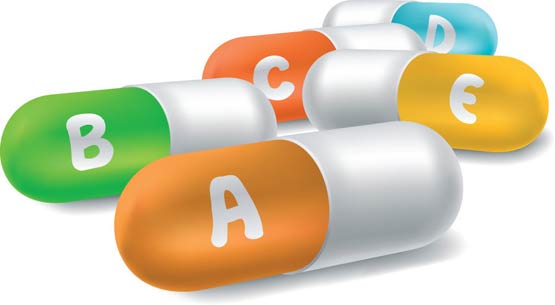
The number of older Americans at risk for a potentially life-threatening drug interaction doubled between 2005 and 2010, according to a new study -- but not just from the prescriptions they fill at the pharmacy or the medicines they buy over the counter.
The study of more than 2,000 people between ages 62 and 85 found that the majority of potentially dangerous drug combinations came from interactions between conventional drugs, such as a blood pressure drug and a cholesterol drug that together can increase risk of muscle damage and kidney failure. But there was an alarming uptick in the number of older Americans taking unproven vitamins and supplements, too -- a scary trend since the safety of those combinations is poorly understood.
"Dietary supplements, which are not really regulated, have increased, and that is surprising. That was one of the things I thought, 'Let me double-check the code and make sure it's real,'" said Dima Qato, assistant professor of pharmacy systems at the University of Illinois at Chicago, who led the study published in JAMA Internal Medicine.
The study compared usage of medications and supplements in 2005-2006 and 2010-2011. It found the overall risk of dangerous drug combinations doubled over the time period to 15 percent of people in the sample, most likely driven by the introduction of Medicare prescription drug coverage.
The number of older Americans taking five or more prescription drugs increased to more than a third of the people in the sample. The use of over-the-counter medications declined slightly, to 38 percent. But the increase in the use of dietary supplements was marked -- the majority of older Americans now keep their medicine cabinets stocked with supplements that have no conclusive evidence of benefits.
For example, the study found a four-fold increase in the use of omega-3 fish oil, to nearly one in five older Americans. That's despite the fact that a major research analysis -- which examined the evidence on fish oil supplements in 20 research studies, including nearly 70,000 people -- showed that the supplements don't seem to have any real heart health benefits. The use of vitamin D nearly tripled, even though the cognitive benefits of vitamin D supplements are unclear.
The dangerous drug interactions between supplements and drugs were in the minority but could be significant. For instance, the blood thinner Warfarin shouldn't be taken in combination with omega-3 fish oils because of an increased risk of dangerous bleeding, such as gastrointestinal bleeding or hemorrhagic stroke. The number of older Americans who kept both in their medicine cabinets increased eightfold, from 0.1 percent in 2005 to nearly 1 percent in 2010.
That may seem like a small increase, but spread over tens of millions of older Americans, it could become a real public health problem. And it points to the larger issues: While there has been a focus on improving access to medications, decreasing the unsafe use of multiple medications hasn't been nearly as big a priority. The study pointed to clear interaction risks with not only the prescription drugs that people might focus on when asking their doctors or pharmacists about what they're taking, but also over-the-counter drugs and even vitamins, which may be perceived as harmless.
Qato's next step is to examine mortality data, to see if the increased risk from taking multiple medications is causing an uptick in deaths or other adverse events.


 Contact The Editor
Contact The Editor
 Articles By This Author
Articles By This Author
